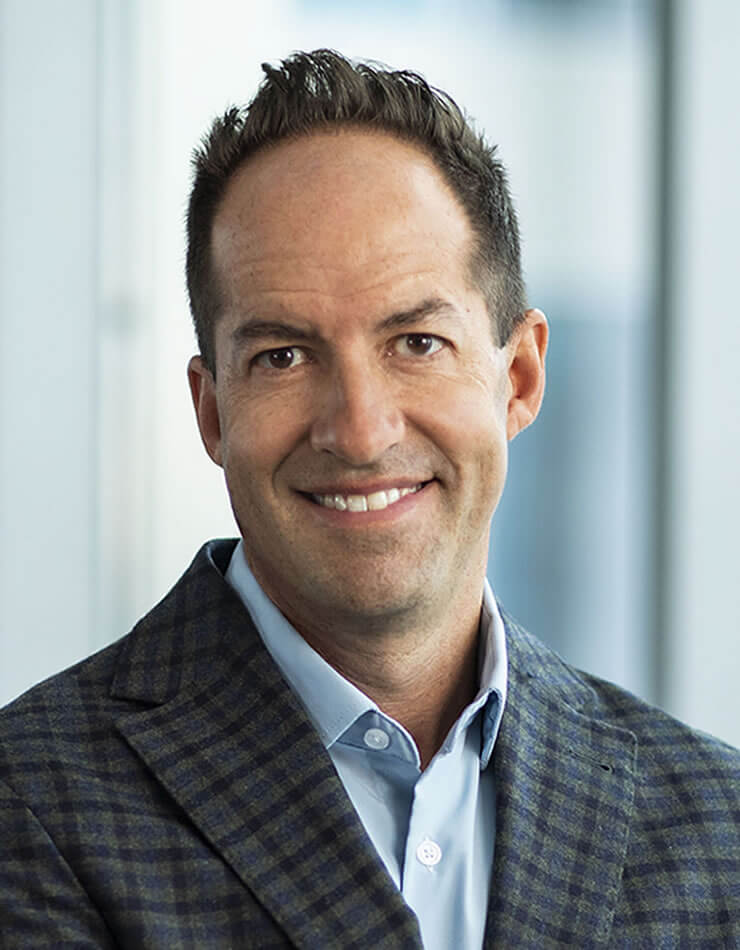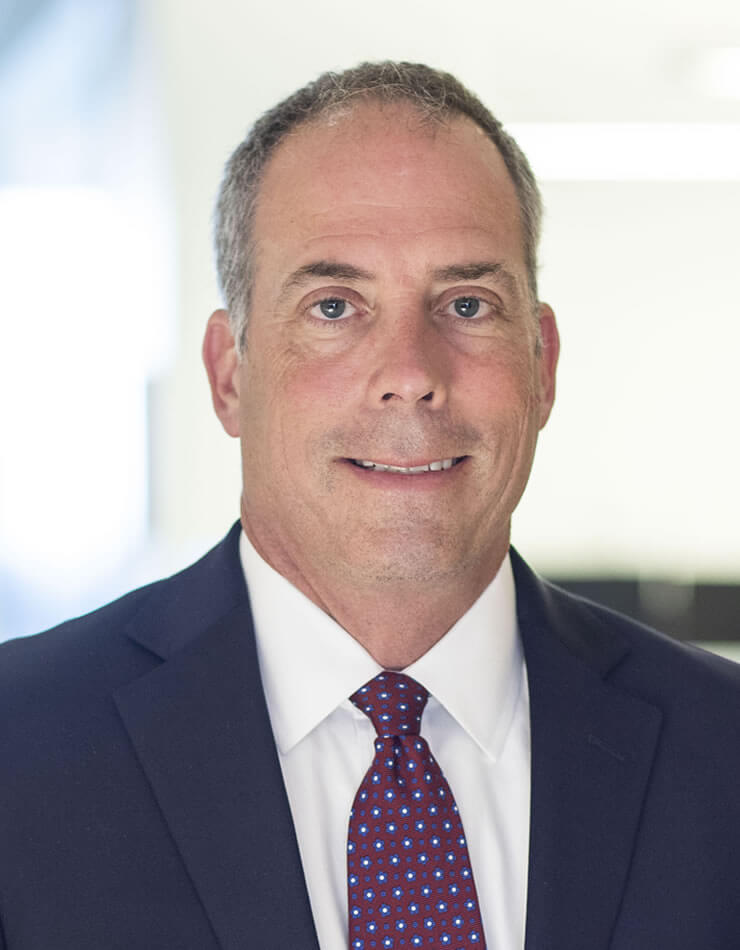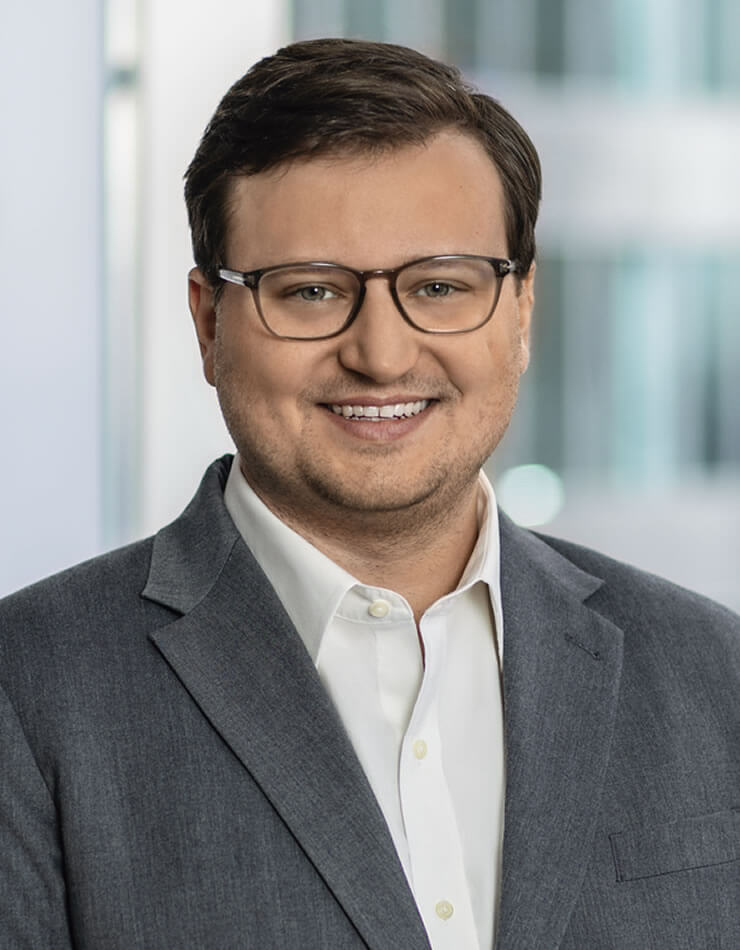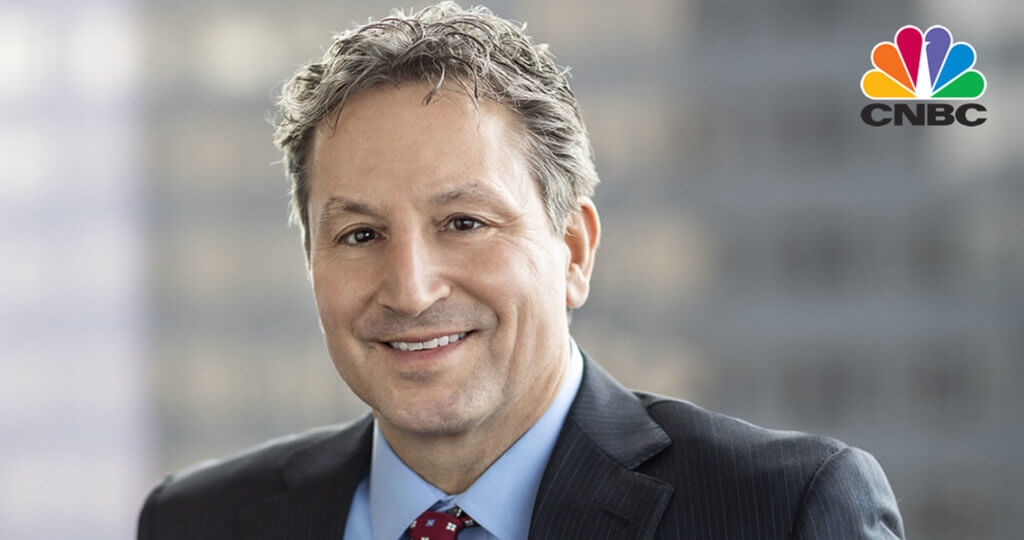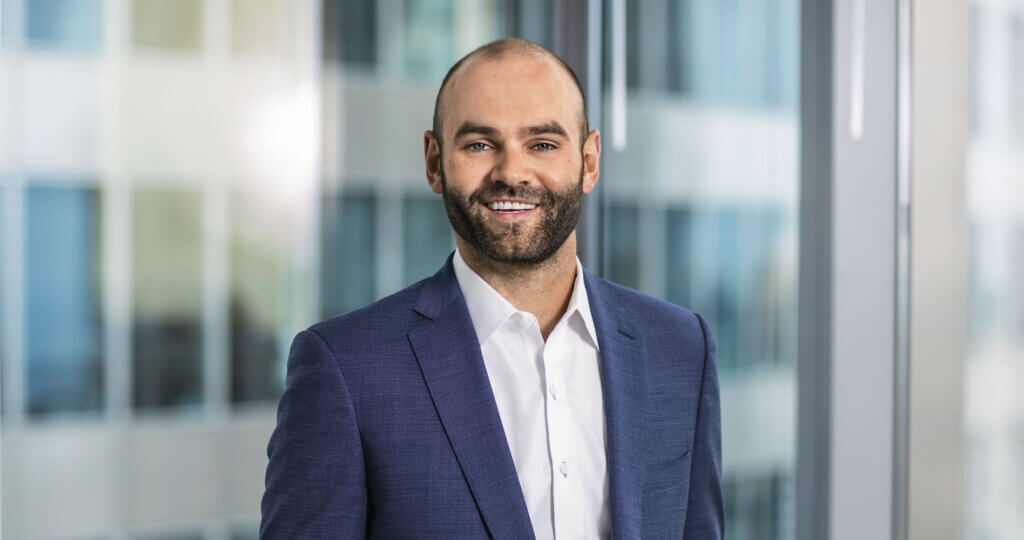Oakmark Global Fund – Investor Class
Average Annual Total Returns 03/31/23
Since Inception 08/04/99 9.32%
10-year 7.39%
5-year 5.11%
1-year -2.69%
3-month 10.54%
Expense Ratio: 1.11%
Expense ratios are from the Fund’s most recent prospectus dated January 28, 2023; actual expenses may vary.
Past performance is no guarantee of future results. The performance data quoted represents past performance. Current performance may be lower or higher than the performance data quoted. The investment return and principal value vary so that an investor’s shares when redeemed may be worth more or less than the original cost. To obtain the most recent month-end performance data, view it here.
Before a man can do things there must be things he will not do.
-Mencius
It would be hard to discuss the first quarter of 2023 without mentioning the surprising and astonishingly quick demise of a small group of U.S. banks in early March. Bill Nygren and David Herro discussed this topic in some detail in their commentaries. Plus, there has been a tremendous amount of Monday morning quarterbacking on what happened and who’s to blame, so we will keep our comments brief. In our opinion, early Chinese philosopher Mencius might have made a terrific banker. In banking, it’s what management does not do that keeps them in the game. Every bank requires financing via deposits and no bank can survive a run on deposits, so it’s incumbent on management teams to not do things to undermine their depositors’ confidence. In the case of Silicon Valley Bank and Signature Bank, they took undue duration risk that left a hole in their balance sheets, albeit a theoretically temporary one since the government securities they invested in would eventually recover to par at maturity, such that depositors got nervous and fled, which then called into question just how temporary those losses might be and thus their solvency. Both banks had a uniquely low proportion of FDIC-insured deposits, which added to flight risk. Fortunately, the banks we own do not have the securities or deposit characteristics shared by these failed banks but their share prices were not immune from the carnage in the sector late in the quarter. As such, you should not be surprised to hear we added two new financials in the quarter, both of which have strong balance sheets and liquidity (even marked to market) that sold down to very attractive prices. Both management teams have strong reputations for not doing things in ways we and Mencius would admire.
Performance Review
Despite the turmoil late in the quarter, the first calendar quarter of 2023 was a good one for the Oakmark Global Fund (“the Fund”) in both a relative and absolute basis. The Fund generated a 10.5% return as compared to a 7.7% return for the MSCI World Index (net). Since inception, the Fund has returned 9.3%, compared to 5.4% for the MSCI World Index.
Both the U.S. and non-U.S. portions of the portfolio contributed to this strong performance with the U.S. (46% of Fund) contributing roughly 40% of the excess return and non-U.S. (54% of Fund) contributing the remaining 60%. The U.S., Germany and Ireland were the top contributors to performance, and the U.K., Italy and Spain were the smallest contributors, though it bears mentioning that no countries we owned were negative in the quarter. The most significant individual stock contributors were Alphabet, Bayer and TE Connectivity, while the largest detractors were Bank of America, Glencore and NOV.
Portfolio Activity
Given the volatility in the quarter, we were more active than usual adding six new names and selling seven.
We purchased AIG, Capgemini, Capital One, ConocoPhillips, Intercontinental Exchange and Envista Holdings and sold Axis Bank, Booking Holdings, Credit Suisse Group, Grupo Televisa, Howmet Aerospace, Mastercard and Pinterest.
With the exceptions of Credit Suisse and Grupo Televisa, the remaining sales were simply a function of price and value converging favorably. David Herro discussed the sale of Credit Suisse in his letter. Grupo Televisa had perennially disappointed us fundamentally, and we determined there were better alternatives where we had more confidence in a good outcome. A brief discussion of Mastercard is also appropriate given we have held this company for nearly 13 years. It’s the 13th-largest contributor to performance for the Fund in our nearly 24-year history, but the largest in total dollars and percentage terms at nearly 1760% . While a terrific company, there were better priced alternatives in the quarter, so we sold our position. Our history with Mastercard fits the adage that all good things must come to an end.
American International Group (AIG) has been a long-term holding across other Oakmark Funds. As we referenced above, the market was painting financials with too broad a brush, and AIG is a great example. There are two primary businesses at AIG: commercial insurance (80% of our estimate of value) and life insurance and annuities (20% of our estimate of value). The latter, now named Corebridge, trades publicly, and AIG owns ~78% of the shares. We expect that AIG will reduce its ownership at appropriate prices over time, leaving the commercial insurance operations on its own. Under the strong leadership of CEO Peter Zaffino, underwriting profits in the commercial insurance operations have improved $7B since 2016 and are now competitive with the broader industry, though AIG’s valuation is not. At $50, AIG sells for less than 8x this year’s consensus earnings and 57% of our estimate of economic tangible book value.
Capgemini has also been a long-term holding across other Oakmark Funds and in fact was held in the Oakmark Global Fund as recently as 2021. As we commented in our fourth calendar quarter 2021 letter, we exited Capgemini as the shares approached our estimate of fair value and redeployed the funds into holdings that possessed more attractive return profiles. While we exited Capgemini due to valuation, we continued to follow the business given its high-quality franchise, its very attractive financial model and its strong leadership team. As Europe’s largest IT consulting firm with expertise in digital transformation, Capgemini benefits from strong secular growth tailwinds while its scale enables it to generate high returns on capital with excellent free cash flow conversion. Despite this favorable long-term backdrop, Capgemini’s shares fell significantly from our 2021 exit price on the back of the broad tech sell off as well as shorter term macro concerns, providing us with another opportunity to own this high-quality business at a substantial discount to our estimate of fair value.
Capital One Financial is another long-term Oakmark holding where the stock was dragged into the banking controversy despite not sharing the balance sheet risks (neither securities’ losses nor uninsured deposits) of the failed banks. Capital One has a terrific track record of both growth and risk management under founder CEO Richard Fairbank. We were buying Capital One at roughly 6x this year’s consensus EPS and a discount to tangible book value. Furthermore, we believe long-term earnings power is well above what we will see this year.
ConocoPhillips is one of the largest and lowest cost U.S. exploration and production companies in the country, led by CEO Ryan Lance—in our view one of the best value creators in the industry. ConocoPhillips’s share prices fell in the first quarter as oil prices receded, which is not atypical. We were buying the company at prices where it could generate its entire market cap in free cash flow over the next decade while growing the production such that at the end of that time, the base of production would be one-third higher. This sort of reinvestment opportunity is unique to ConocoPhillips and clearly not reflected in the current share price.
Intercontinental Exchange is one of the largest and most successful financial exchange operators. The company was created through a series of shrewd acquisitions under founder and CEO Jeff Sprecher. We believe Sprecher is an excellent CEO with a history of astute capital allocation and an ability to adapt to opportunities and competitive threats. Today, Intercontinental Exchange competes in three primary segments: exchanges, fixed income/data services and mortgage technology. We believe each of these businesses exhibits attractive economic characteristics and will grow earnings faster than GDP over time. Investors today are concerned about Intercontinental Exchange’s mortgage segment as rising interest rates have depressed origination volumes. We agree that this segment will be pressured in the near term. However, only 7% of trailing 12-month revenues are sensitive to mortgage volumes, and we believe they will eventually revert to historical norms. Today, however, Intercontinental Exchange sells for what we believe is an underserved discount to its exchange peers and private market valuations.
Envista Holdings is a leading dental products manufacturer. You may recall this was a successful investment dating back to 2020 that we sold less than a year ago. During the tumult in smaller capitalization companies in the first quarter, the share price once again met our criteria for investment, and its strong fundamentals matched our expectations. Unfortunately, the market began to agree with our assessment of attractiveness before we could build a full position. This is both a high-quality problem and a reality for investors as value conscious as we are.
Thank you for being our partners in the Oakmark Global Fund. We invite you to send us your comments or questions.
The securities mentioned above comprise the following percentages of the Oakmark Global Fund’s total net assets as of 03/31/2023: Alphabet Cl A 6.2%, American International Group 1.1%, Axis Bank 0%, Bank of America 2.2%, Bayer 3.6%, Booking Holdings 0.0%, Capgemini 1.5%, Capital One Financial 1.4%, ConocoPhillips 0.9%, Corebridge 0%, Credit Suisse Group 0%, Envista Holdings 0.5%, Glencore 1.8%, Grupo Televisa 0%, Howmet Aerospace 0%, Intercontinental Exchange 1.1%, Mastercard 0%, NOV Inc. 0.8%, Pinterest 0%, Signature Bank 0%, Silicon Valley Bank 0% and TE Connectivity 3.0%. Portfolio holdings are subject to change without notice and are not intended as recommendations of individual stocks.
Access the full list of holdings for the Oakmark Global Fund here.
EPS refers to Earnings Per Share and is calculated by dividing total earnings by the number of shares outstanding.
The S&P 500 Total Return Index is a float-adjusted, capitalization-weighted index of 500 U.S. large-capitalization stocks representing all major industries. It is a widely recognized index of broad, U.S. equity market performance. Returns reflect the reinvestment of dividends. This index is unmanaged and investors cannot invest directly in this index.
The MSCI World Index (Net) is a free float-adjusted, market capitalization-weighted index that is designed to measure the global equity market performance of developed markets. The index covers approximately 85% of the free float-adjusted market capitalization in each country. This benchmark calculates reinvested dividends net of withholding taxes. This index is unmanaged and investors cannot invest directly in this index.
On occasion, Harris may determine, based on its analysis of a particular multi-national issuer, that a country classification different from MSCI best reflects the issuer’s country of investment risk. In these instances, reports with country weights and performance attribution will differ from reports using MSCI classifications. Harris uses its own country classifications in its reporting processes, and these classifications are reflected in the included materials.
The Fund’s portfolio tends to be invested in a relatively small number of stocks. As a result, the appreciation or depreciation of any one security held by the Fund will have a greater impact on the Fund’s net asset value than it would if the Fund invested in a larger number of securities. Although that strategy has the potential to generate attractive returns over time, it also increases the Fund’s volatility.
Investing in foreign securities presents risks that in some ways may be greater than in U.S. investments. Those risks include: currency fluctuation; different regulation, accounting standards, trading practices and levels of available information; generally higher transaction costs; and political risks.
The compound return is the rate of return, usually expressed as a percentage that represents the cumulative effect that a series of gains or losses has on an original amount of capital over a period of time. Compound returns are usually expressed in annual terms, meaning that the percentage number that is reported represents the annualized rate at which capital has compounded over time.
The percentages of hedge exposure of each foreign currency are calculated by dividing the market value of all same-currency forward contracts by the market value of the underlying equity exposure to that currency.
The information, data, analyses, and opinions presented herein (including current investment themes, the portfolio managers’ research and investment process, and portfolio characteristics) are for informational purposes only and represent the investments and views of the portfolio managers and Harris Associates L.P. as of the date written and are subject to change and may change based on market and other conditions and without notice. This content is not a recommendation of or an offer to buy or sell a security and is not warranted to be correct, complete or accurate.
Certain comments herein are based on current expectations and are considered “forward-looking statements”. These forward looking statements reflect assumptions and analyses made by the portfolio managers and Harris Associates L.P. based on their experience and perception of historical trends, current conditions, expected future developments, and other factors they believe are relevant. Actual future results are subject to a number of investment and other risks and may prove to be different from expectations. Readers are cautioned not to place undue reliance on the forward-looking statements.
All information provided is as of 03/31/2023 unless otherwise specified.

